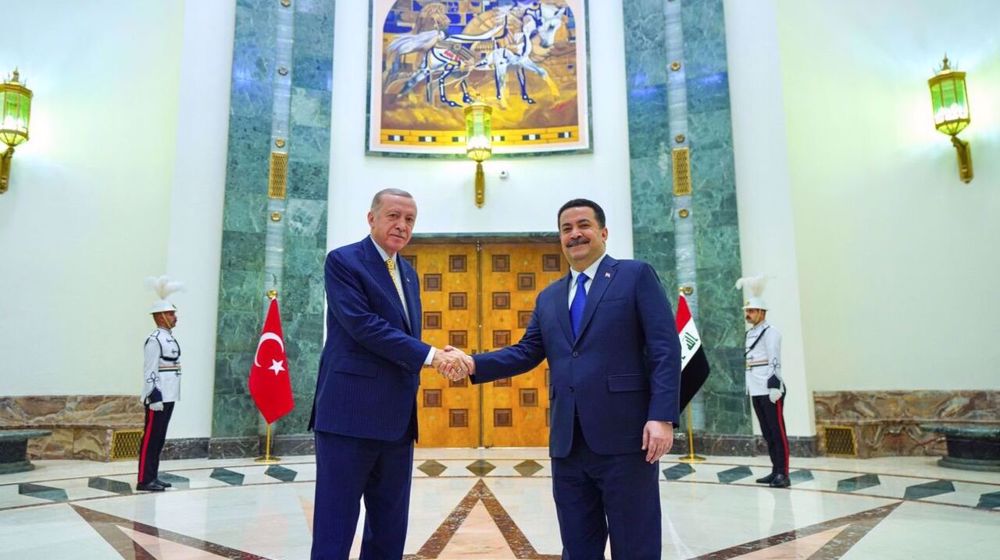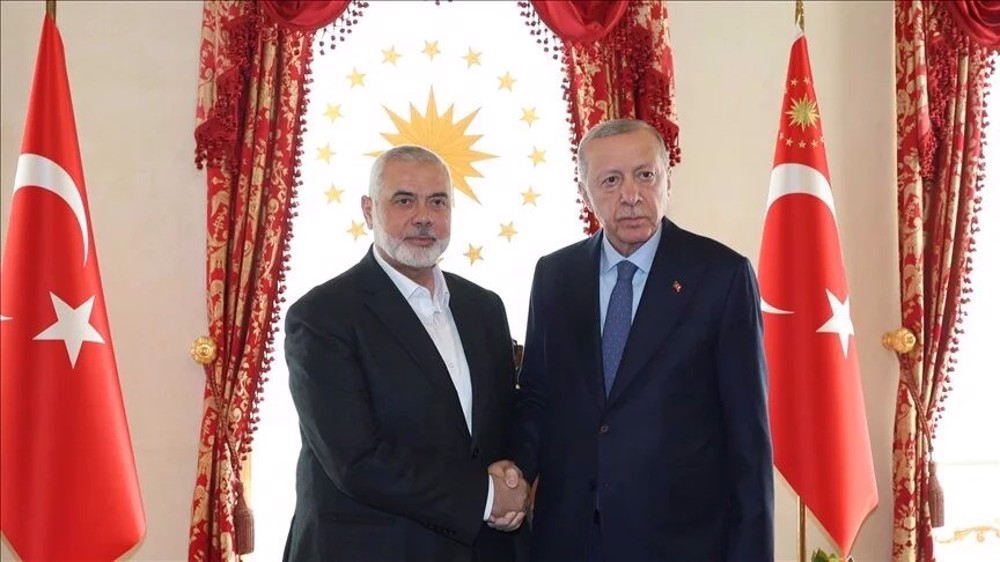Turkey spying on Gulen supporters unacceptable: German minister
A German state minister has accused Turkey of committing "unacceptable" acts of espionage against the purported followers of exiled cleric Fethullah Gulen, whom Ankara accuses of having engineered last July's botched coup in the country.
"It is notable with what intensity and ruthlessness the people living abroad are being investigated," said Boris Pistorius, the interior minister of the northern German state of Lower Saxony, at a Tuesday press conference.
Pistorius described the situation as “intolerable and unacceptable," noting that Ankara had handed a list of 300 suspected Gulen supporters to Germany's spy service and asked Berlin to help spy on them.
After the German spy service turned the list over to state governments, state of Lower Saxony decided to inform over 10 targets fearing that people could suffer "retaliation" if they traveled to Turkey while unaware they were on a watch list, Pistorius said.
He described the Turkish authorities’ actions as "something close to paranoia," noting that "all Gulen supporters are assumed to be terrorists and enemies of the state even though there is not the tiniest scrap of evidence."
"Until today, we have no evidence whatsoever that Gulen supporters have violated any rules in any way," the minister pointed out.
Last week, Germany's foreign intelligence chief, Bruno Kahl, enraged Ankara after he said he was unconvinced Gulen was behind the failed coup in Turkey.
Kahl said Ankara had repeatedly tried to convince Berlin of Gulen’s role behind the coup, "but they have not succeeded,” noting that the putsch was staged by a "part of the military" that expected to be targeted in an ongoing government purge.
Turkey has detained over 41,000 people over suspected links to Gulen's movement and sacked or suspended 100,000, including teachers, police, magistrates and journalists from their jobs since the coup happened last July.
Read more:
Relations between Turkey and Germany are severely strained over a wide range of issues particularly after the failed coup.
Berlin has slammed Ankara's violations of human rights during the post-coup crackdown and detention of a correspondent for the German daily Die Welt, who is jailed on terror charges. Ankara, on the other hand, has been enraged by Berlin’s refusal to allow some Turkish ministers to campaign in the country for a "yes" vote to a planned referendum on April which significantly extends President Recep Tayyip Erdogan's grip over power.
Turkey accuses several EU nations of permitting ‘No’ supporters to campaign in their countries, but blocking rallies organized by ‘Yes’ supporters.
Germany and the Netherlands have banned several of such rallies, citing security.
Warning to Europe
On Tuesday, Turkish Prime Minister Binali Yildirim warned Europe against interfering in the upcoming referendum, adding that Europe should "mind its own business.”

The April 16 plebiscite is aimed at abolishing the office of the prime minister and giving more executive powers, including issuing decrees, declaring emergency rule, appointing ministers and state officials and dissolving the parliament, to the currently largely ceremonial position of the Turkish president. Critics, however, say the vote would give the Turkish president dictatorial powers.
On Saturday, Erdogan said a second referendum may be held after the April constitutional reforms vote over the continuing of Turkey’s EU accession talks.
The country applied for membership in the European Union in 1987, and began formal accession negotiations in 2005. Since then the talks have made little progress over Turkey’s human rights track record.
VIDEO | Anti-US sentiments grow in Iraq as US military presence unresolved
Jamaica officially recognizes state of Palestine
Raeisi attends inauguration of Iran-built mage multipurpose project in Sri Lanka
'Sinwar still supervising Gaza war; Israel deliberately delaying talks on captives'
VIDEO | Press TV's news headlines
UK's Rwanda deportation plan morally disgraceful
VIDEO | Raeisi inaugurates Iranian-built mega multipurpose project in Sri Lanka
VIDEO | Italian parliament hosts book launch on Palestine's untamed resistance










 This makes it easy to access the Press TV website
This makes it easy to access the Press TV website